Years of turmoil at Postal Service governing board fueled political firestorm, critics say
A years-old Senate standoff contributed to the current controversy, experts say.
As President Barack Obama's second term came to a close, a dispute erupted between two of the Senate's most polarizing figures.
Sen. Bernie Sanders, I-Vt., and Senate Majority Leader Mitch McConnell, R-Ky., squared off over Obama's nominees to the U.S. Postal Service's Board of Governors -- the powerful panel that oversees post office operations. When the two politicians failed to reach an agreement, all nine seats were left unfilled, laying the foundation for a controversy that now engulfs one of America's most beloved institutions and, some are alleging, could threaten the 2020 election.
"The unions were involved, presidential politics were involved," said Stephen Crawford, a former nominee to join the board of governors. "Politically, it was a very interesting microcosm of American special interest group politics ... and here we are now."
Sanders' decision in 2015 and 2016 to block two of the Obama administration's nominees -- made at the behest of powerful union leaders -- and McConnell's decision to block the rest in retaliation created a unique opportunity for President Donald Trump to appoint a full slate of picks to a panel that is meant to be comprised of bipartisan members serving staggered, seven-year terms.
That standoff over the appointees has emerged as a poignant example of the law of unintended consequences in Washington -- and Postal Service insiders now place it at the root of the current threat facing both the Postal Service and the upcoming presidential election.
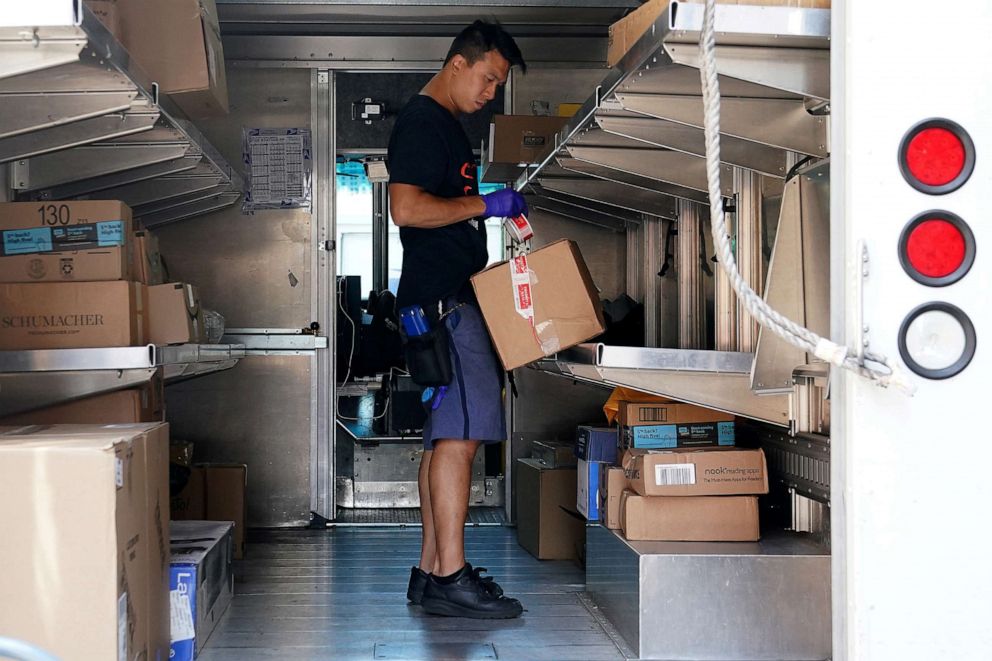
Critics say those Trump appointees, who lacked experience in the Postal Service, recently chose another outsider with no experience to be postmaster general, Louis DeJoy, who made "rash" cost-cutting decisions and alienated senior leadership.
"Unfortunately, the Postmaster General has never worked at the Postal Service," said Sen. Tom Carper, D-Del. "Complicating matters, we have a majority of appointees on the board of governors who don't have postal experience either."
"So to think that the current leadership can come in and, over a few weeks, implement sweeping changes at an institution as vast as the Postal Service is naive at best and political malfeasance at worst," Carper continued.
Those cost-cutting measures, which include cuts to overtime pay and foregoing additional pickup and delivery trips, came as Trump railed against mail-in voting, sparking criticism that the voters turning to mail-in ballots amid the pandemic could be disenfranchised.
The Postal Service did not respond to a request for comment nor a request to speak with members of the board of governors.
Crisis at the Postal Service
As the outcry over delayed mail service ahead of the presidential election snowballed in recent weeks, the focus of critics' ire has been firmly trained on DeJoy, a longtime Republican financier and major Trump donor with no background in postal operations.
Since taking the agency's helm in June, DeJoy has enacted a series of cost-cutting reforms meant to streamline the Postal Service, which has long suffered financially. But in recent weeks, he has fallen under intense scrutiny after proposing those measures just as Trump was complaining about universal mail-in voting and issuing unfounded claims of the potential for widespread fraud.
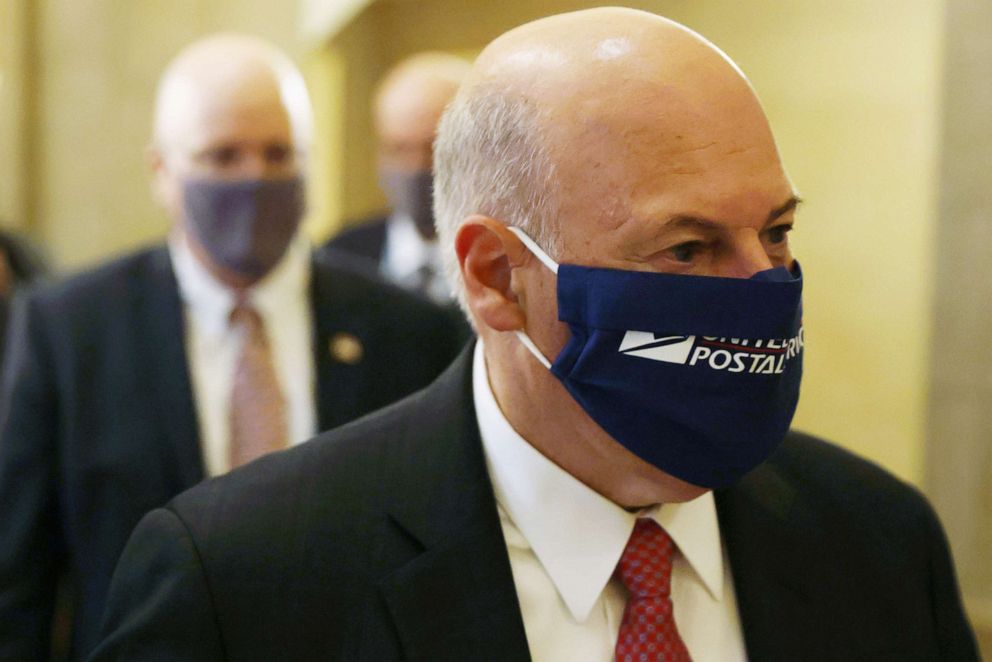
As DeJoy has been forced onto center stage, including appearances before Congress planned for Friday and Monday, members of the board, which has wide latitude over the service's course, have largely remained silent.
The board's most crucial task, experts said, is in appointing -- or removing -- the postmaster general and deputy postmaster general. On Wednesday, a group of Democratic lawmakers called on the board to exert its authority to remove DeJoy.
Less than 24 hours earlier, DeJoy acquiesced to mounting pressure, announcing that he would suspend some initiatives until after the election "to avoid even the appearance of any impact on election mail." It was not immediately clear whether he would reverse actions already taken, such as the removal of mail-sorting machines in some facilities.
Presidents are ostensibly responsible for nominating members for vacant seats, but the job of identifying candidates is often outsourced to Senate leadership. Robert Duncan, the board's current chair, for example, is a longtime friend of McConnell. Members are recommended by Senate leaders of both parties, and they are supposed to be drawn from both sides of the aisle -- with no one party getting more than five seats.
"God love him, but [former Senate Majority Leader] Harry Reid [D-Nev.] if he could have filled the board with all Nevadans, he would have done it," said Jim Sauber, the chief of staff at the National Association of Letter Carriers, a postal workers union.
The arrangement was intended to ensure a bipartisan board, but the seats have historically been ripe targets for political patronage.
The board exerts significant authority over the massive agency. So when the board was left vacant in December 2016, on the eve of Trump's inauguration, panic set in at the Postal Service.
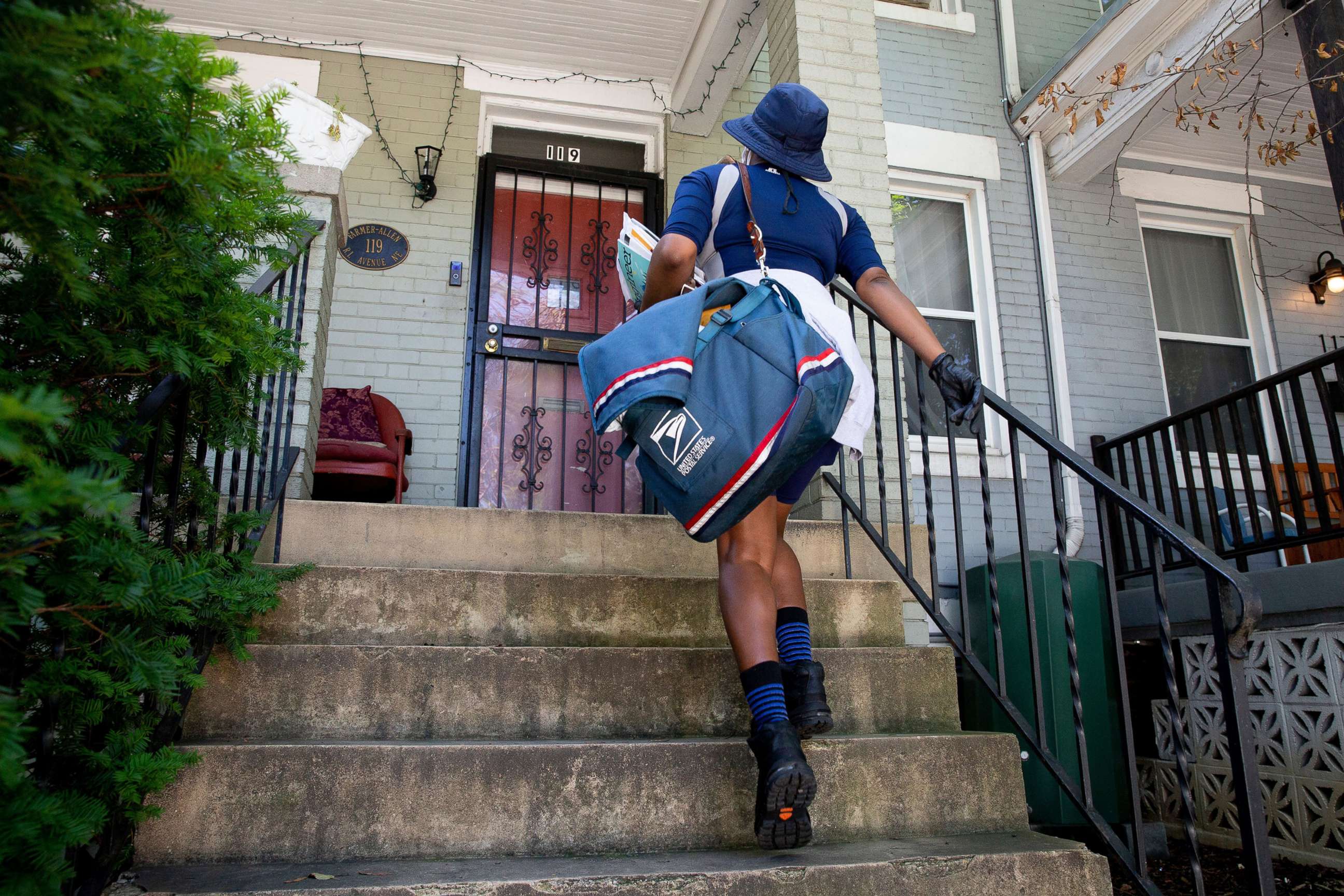
Stalled in the Senate
Late in the Obama administration, only one governor remained on the board as a backlog of five nominees accumulated in the Senate. All five had sailed through Senate Homeland Security and Governmental Affairs, the committee of jurisdiction, but were left in limbo without a vote before the full chamber, according to several people involved in the discussion.
At issue, those people said, were two Republican nominees: James Miller III, a former governor who had been renominated to the board in 2013, and Mickey Barnett, another former governor who had lobbied for payday lenders in his home state of New Mexico.
Miller had served as the director of the Office of Management and Budget under President Ronald Reagan, and had at one point suggested privatizing the Postal Service -- a position that made him anathema to the powerful postal unions.
To quell Miller's nomination, Mark Dimondstein, president of the American Postal Workers Union, encouraged Sanders to block a vote on his nomination.
"We wanted good governors because good governors are good for the public postal service," Dimondstein told ABC News, "and we couldn't get it done."
Around the same time, Sanders scored a lucrative endorsement from Dimondstein's union for his 2016 presidential bid. In a press release announcing the union's endorsement of Sanders in late 2015, Dimondstein noted that Sanders "has already blocked the slate of nominees to the postal Board of Governors that includes the 'king of postal privatizers' James Miller and payday lending industry lobbyist Mickey Barnett."
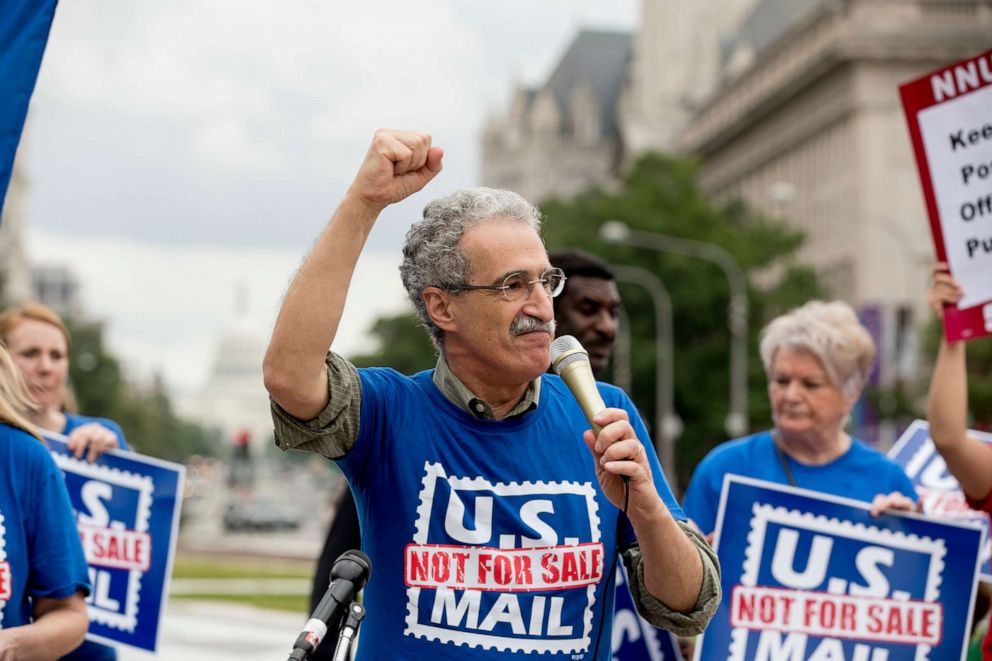
A Sanders aide called it "offensive" to suggest he blocked the nominees in exchange for a presidential endorsement, and dismissed critics who labeled his blockade as being partially responsible for the current postal crisis.
"It is a total lie and a distortion of reality to assert that Bernie Sanders, one of the strongest defenders of the U.S. Postal Service in Congress, enabled Trump's efforts to destroy the Postal Service," said Warren Gunnels, a senior policy adviser to Sanders.
"Along with the American Postal Workers Union, the AFL-CIO and the NAACP," Gunnels continued, "Sen. Sanders did everything he could to stop two extreme right-wing Republicans from being appointed to the Postal Service's Board of Governors."
For his part, Miller claimed Dimondstein used him as a "whipping boy" to retain support of the union.
"[Dimondstein's] number one goal was to make sure I never got back on the postal board -- as if I knew there was a room in headquarters where I could flip a switch and it would suddenly be privatized," he said. "It was very frustrating. And the more frustrating it got, the more determined I was to see it through."
Miller's determination was matched by a powerful supporter -- McConnell. In retaliation for Sanders' hold on Miller's nomination, McConnell blocked votes on the three Democratic nominees.
"McConnell basically said, 'if you don't give me James Miller III, I'm not giving you anybody,'" Sauber said. "And that's what he did."
McConnell's office did not respond to a request for comment.
The slate of nominees included former Sen. Ted Kennedy's widow, Vicki Kennedy, and Stephen Crawford, an economic sociologist who served on Obama's postal service transition team in 2009. Crawford said the group of five often met over lunch to discuss their mutual frustration at the holdup.
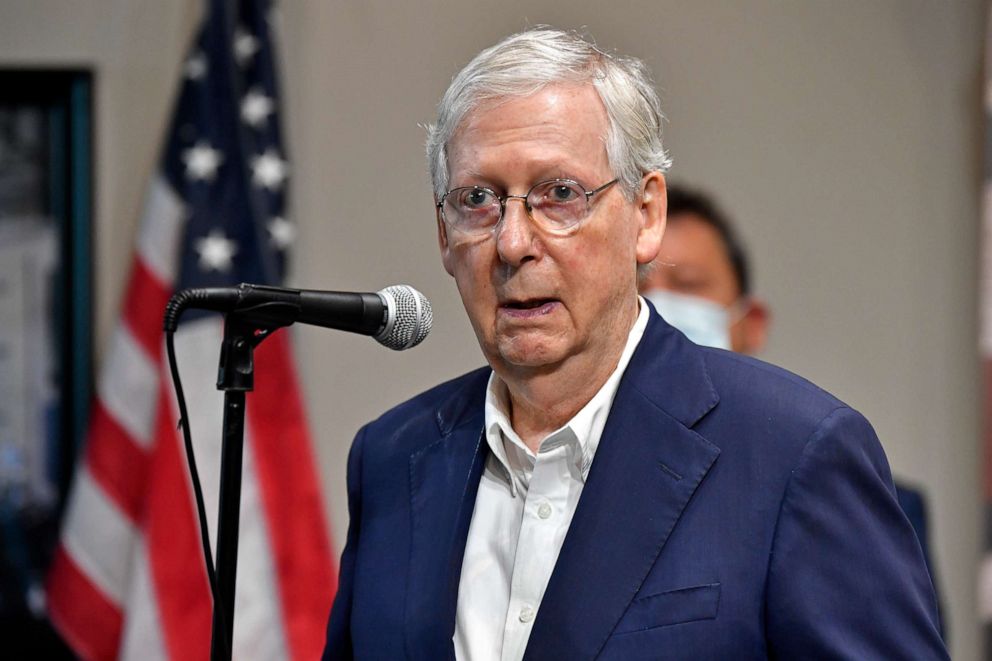
"We were ready to roll up our sleeves and fix the Postal Service," Crawford said. "We had slight differences in where we were coming from, but we were ready to work together."
After Trump's election in November 2016, Crawford said he and the others remained hopeful that the Senate would approve their nomination during the lame duck session. He said, "right to the end there were signs that it might happen." But eventually Congress left Washington, and with a Republican arriving to the White House, their fate was sealed.
"We met for lunch once again for old times' sake," Crawford said. "But eventually that all faded."
A new president, a new board
The Postal Service had spent years in dire financial straits by the time Trump took office in January 2017. One month earlier, the final governor remaining on the board had seen his term expire and stepped down, leaving two Obama-era holdovers as postmaster general and deputy postmaster general to lead the agency until DeJoy's appointment earlier this year.
For the first time since President Richard Nixon established the Board of Governors, it was empty. Industry experts said this absence of leadership led to a period of paralysis at the agency, where the status quo -- which almost everyone agreed was not sustainable -- prevailed indefinitely.
"We saw a real slowdown in terms of real initiatives during that time because the management did not have governors," said Stephen Kearney, the executive director of the Alliance of Nonprofit Mailers, a national network of nonprofits focusing on postal mail. "It was a real period of stagnation."
In early 2018, the president tapped Treasury Secretary Steven Mnuchin to convene a task force to "evaluate the operations and finances of the USPS and to develop recommendations for administrative and legislative reforms that will enable the USPS to create a sustainable business model," the White House said.
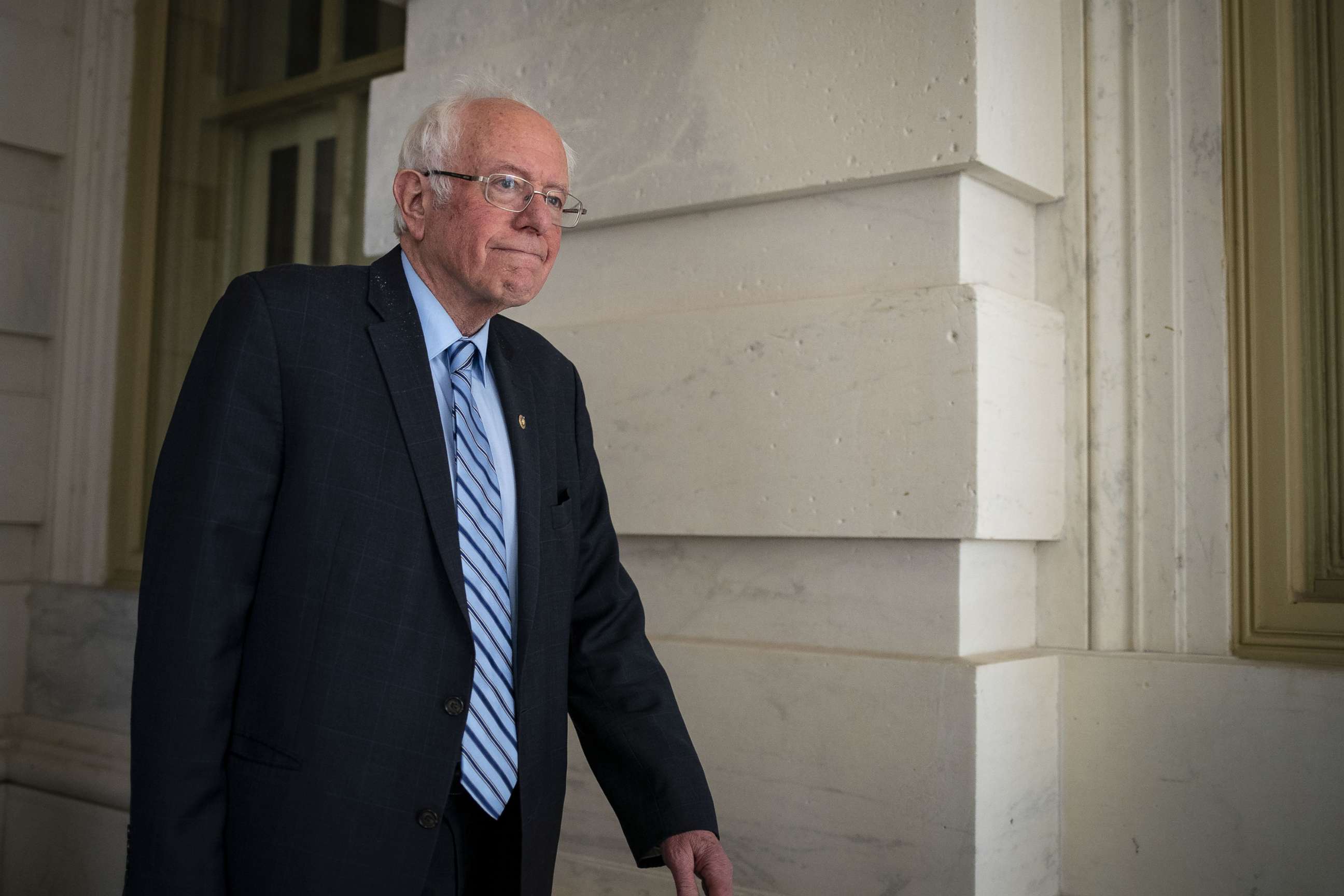
Kearney met with the task force and made the obvious suggestion: nominate a board of governors. He said it was "one of the main tools that the administration has" to create change at the agency, and it was compounded by the fact that there were no governors at the time and Trump had a "very unusual opportunity" to appoint a full slate.
The president took that advice, swiftly adding seven governors to the board. Industry experts say the new crop has enough tangential experience to justify their nominations, but most lack direct experience in mail and postal operations -- a troubling prospect given the overwhelming issues already facing the agency and completely without precedent, said Michael Plunkett, the CEO of the Association of Postal Commerce, a trade group for commercial mailers.
"Because this administration inherited a completely empty slate, for the first time ever we have all new governors," Plunkett said. "[It is] technically a bipartisan group -- but they all were appointed by the same president."
'The blind leading the blind'
The sitting board of governors comes from a diverse set of corporate backgrounds. Robert Duncan, its chairman, is a former banker and led the Republican National Committee from 2007-2009. Three investment bankers and two transportation and logistics company executives round out the rest.
"Do all of these guys have mail experience and postal knowledge? No," said Bob Rosser, the vice chair of the Mailers Technical Advisory Committee, a group of industry leaders who consult with the Postal Service on mutual interests. "Would we expect them to [have that experience] on any board? Probably not. But they've only been in the position a short time."
Rosser and others said that despite the current board's impressive private sector resumes, the collective dearth of government and postal experience sets them at a distinct disadvantage. The issue of experience was compounded by their selection of Louis DeJoy as postmaster general, an outside hire with no postal experience of his own, experts said.
"There is very little institutional knowledge among the governors because they're all so new. All these guys have been appointed in the last two years. So that's a potential problem," Plunkett said.
One Democratic Senate staffer leveled a blunter assessment.
"It's the blind leading the blind over there right now," the aide said, speaking on the condition he not be named because of the political sensitivities surrounding the issue. "DeJoy came in, he's got a board of governors that don't have postal experience."
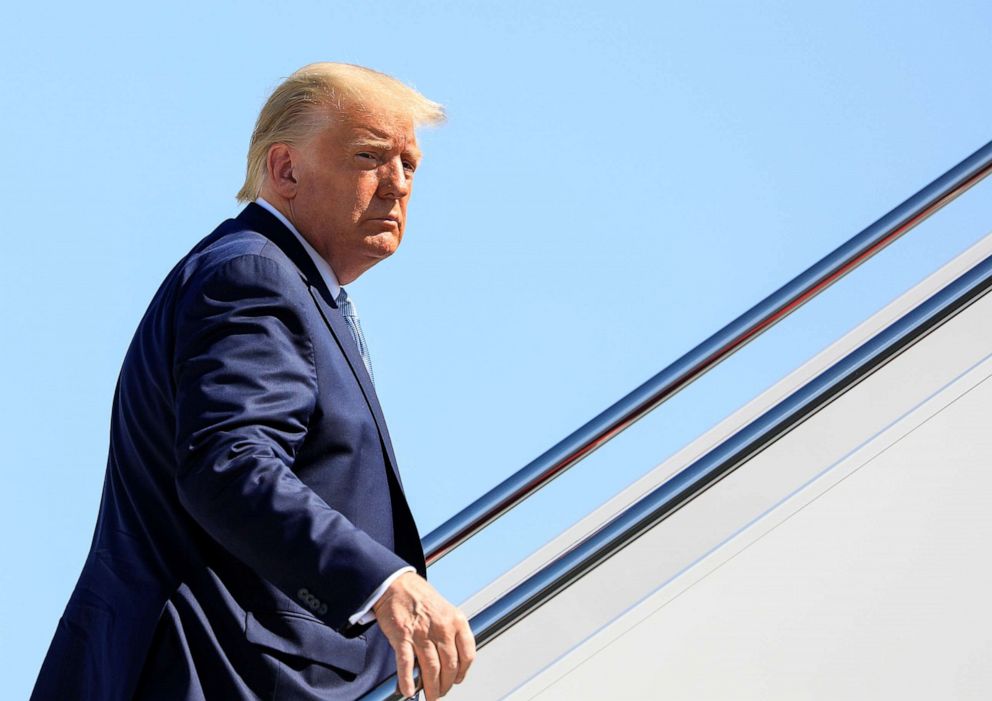
DeJoy's appointment as postmaster general almost immediately created fissures within the board of governors. David Williams, a former inspector general for the Postal Service who was later confirmed to the board in 2018, resigned in protest, according to three people with knowledge of his decision.
Williams, one of the Democrats nominated by Schumer, was regarded as the only board member with relevant experience in the Postal Service at the time of his departure.
"[Williams] knows the Postal Service inside and out," Dimondstein said.
The Senate aide said it was Duncan who advocated for DeJoy to become postmaster general. Duncan served with DeJoy's wife, Aldona Wos, on the President's Commission on White House Fellowships.
Williams, who did not respond to a request for comment, is scheduled for an ad-hoc hearing before the Congressional Progressive Caucus on Thursday. Duncan has agreed to testify publicly on Monday alongside DeJoy before the House Homeland Security committee.
The cost-cutting rollout
One of the main issues confronting the Postal Service's rollout of the new cost-cutting measures, according to Plunkett, was its failure to convey how and why it was taking these dramatic steps.
"The Postal Service has not communicated effectively in implementing these changes, and that might be attributable to a lack of experience and a lack of ability to foresee how some of these changes would be perceived and how stakeholders would react," he said. "Because it should have been predictable ... and that's hurting them right now."
Several industry experts tied the current Postal Service woes directly back to the Senate stonewalling of the five Obama nominees -- two of whom had already served terms on the board.
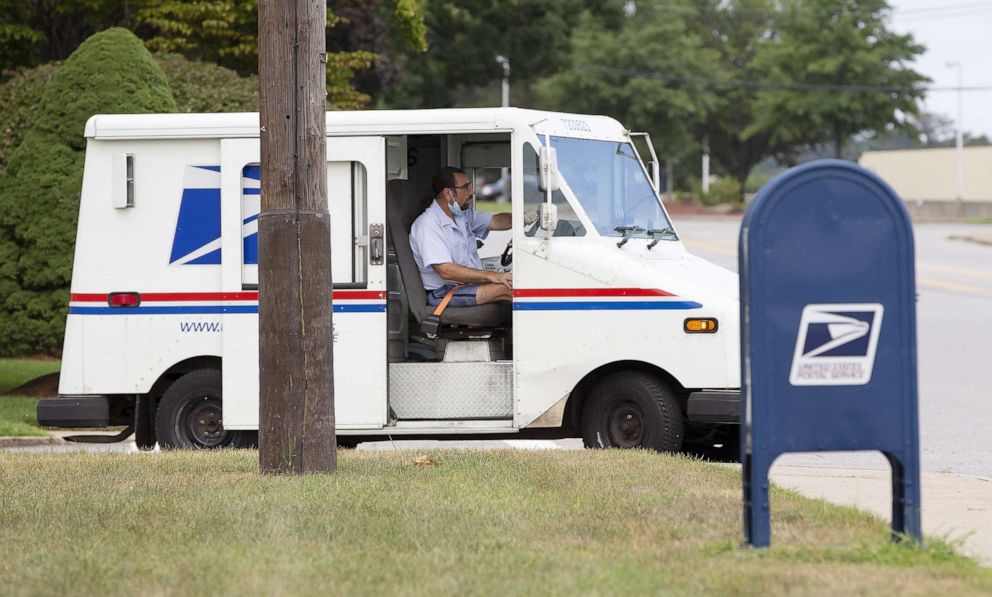
"DeJoy comes in with no experience and starts making rash decisions ... and suddenly things start to blow up," the Democratic Senate aide said. "We would not be in the same position today if we had the Obama nominees in there trying to keep the ship straight under the Obama administration."
Others had more measured interpretations. Sauber, the chief of staff at the National Association of Letter Carriers, said more seasoned governors might have counseled DeJoy on the timing of his reforms, but stopped short of tying today's crisis to the 2016 Senate blockade.
"It is possible a more experienced board might have encouraged him to hold back and encourage him to wait to impose these changes until after the election, after the busy season," Sauber said.
Crawford, one of those Obama-era nominees, suggested that Dimondstein might harbor some regret for instigating the senate stalemate, positing that the cost-cutting measures his union has publicly and loudly condemned likely would not have been enacted.
"I suspect Mark [Dimondstein] himself regrets that he torpedoed that board because I think we would have done a lot to restore the postal service to viability," Crawford said.
Dimondstein stood by his actions: "None of us have crystal balls," he said.
Sanders' aide says the senator, too, stands by his decision to hold fast on the appointments.
"We would have been in the same place we are today," Gunnels contended.



